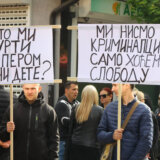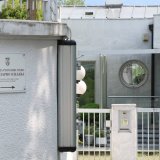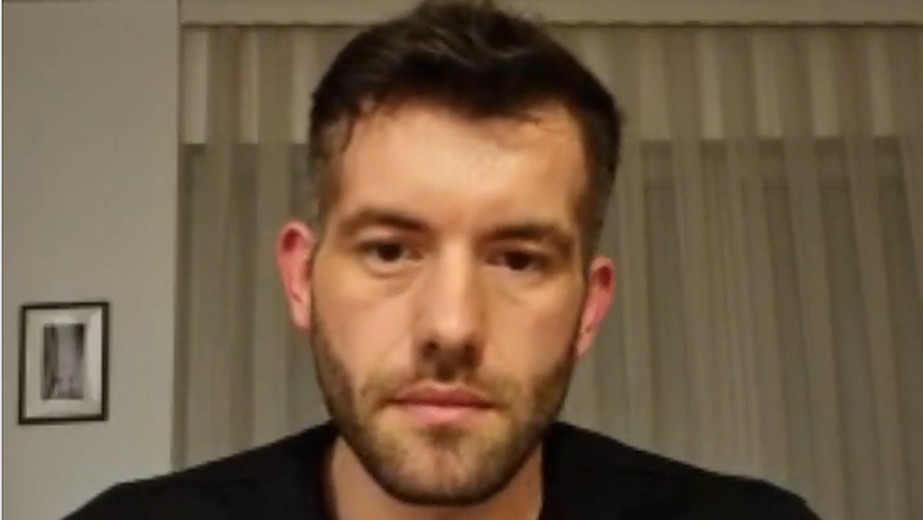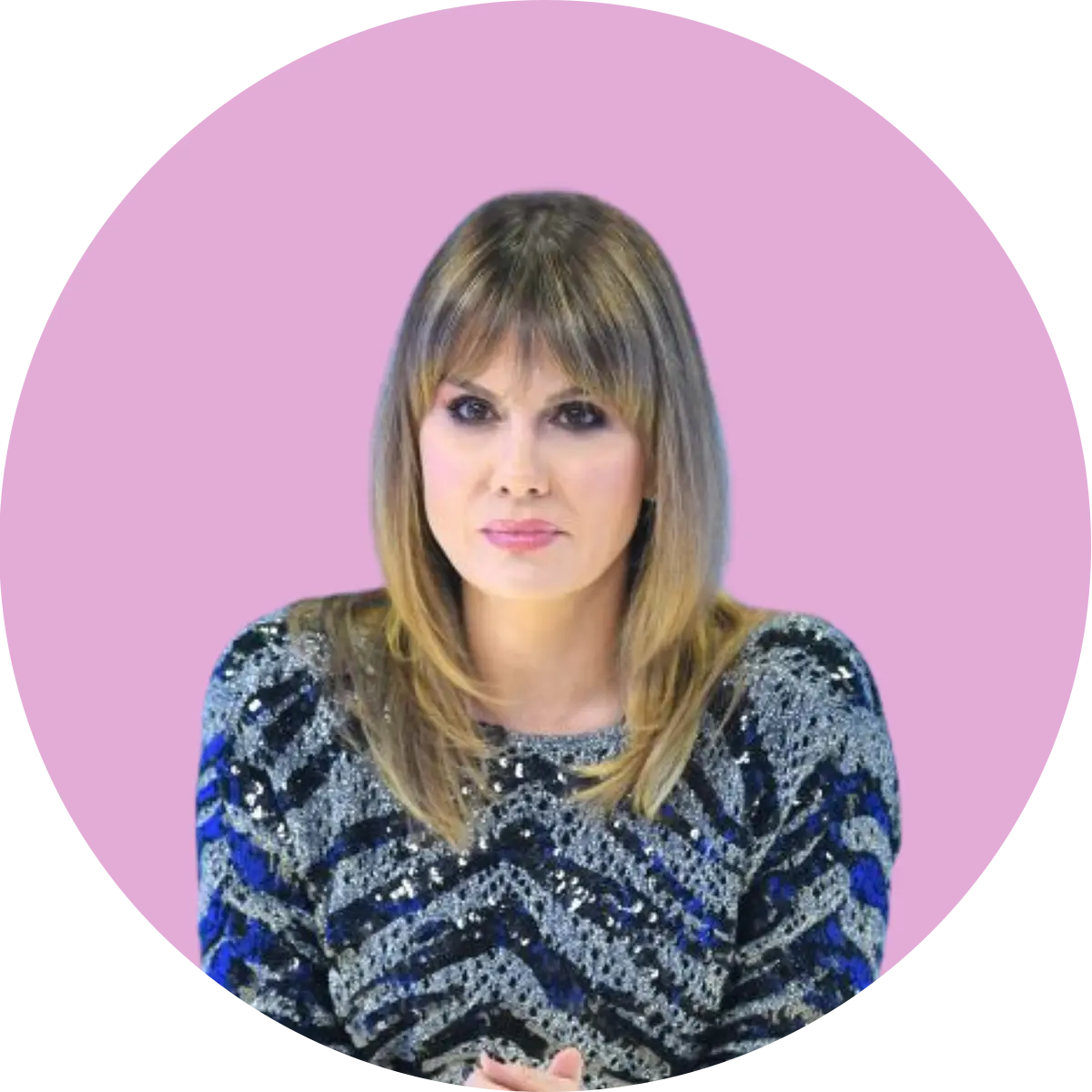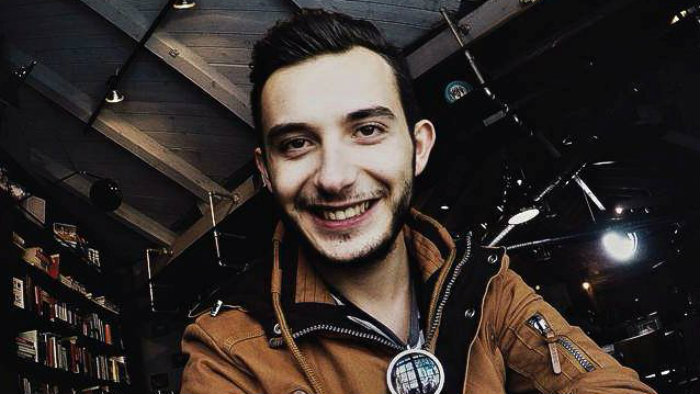
Omladina na Kosovu je veoma ambiciozna i spremna za rad i progres. Kad dođe do smene generacija na svim i institucionalnim i društvenim sferama, Kosovo može biti mala i veoma perspektivna evropska zemlja.
To smatra reditelj Edin Alija, režizer sa Kosova, koji je bio sagovornik u okviru projekta portala Danasa „Druga strana Kosova“.
Njegov poslednji film „Nikome Ništa” veoma je jedinstven jer na njemu sarađuju bošnjački, albanski i srpski umetnici, i kao takav, prema rečima sagovornika, prikazuje Kosovo kao zemlju multietničke saradnje i tolerancije, a naše umetnike kao pojedince koji su apsolutno spremni razumeti drugu stranu i bez ikakvih predrasuda i predumišljaja spremni da sarađuju.
Alija je u okviru projekta portala Danasa „Druga strana Kosova“ odgovarao na naša pitanja, pitanja rediteljke Senke Domanović, i pitanja čitalaca sa društvenih mreža.
Projekat ima za cilj da približi kosovskoj i srpskoj javnost informacije koje nisu plasirale političke elite, ni s jedne strane, već nezavisni građani javne i kulturne scene Kosova.
- Pitanja Danasa:
Šta bi, prema Vašem mišljenju, trebalo najpre i prioritetno učiniti kako bi se odnosi Srbije i Kosova normalizovali?
– Mislim da se dosta radi, što se tiče kosovske strane, na normalizaciji odnosa naših zemalja, ali smatram, bar na osnovu informacija koje posedujem, da to nije slučaj i sa srpske strane. Normalizacija, osim političkih demagogija, ima i psihološku prirodu. Normalizovati odnose takođe znači prihvatanje nekog drugog i drugačijeg, što je u ovom slučaju najveći problem na kome treba raditi. Jedan tipičan primer ovoga jeste „Mirdita, dobar dan” festival koji se održava i u Prištini i u Beogradu. Tokom posete umetnika iz Prištine u Beogradu je bilo protesta pa i pretnji umetnicima iz Prištine. To nije bio slučaj sa umetnicima iz Beograda kada su boravili u Prištini. Jako mali, ali značajan detalj.
Šta mislite o procesu normalizacije koji trenutno sprovode vlasti u Prištini i Beogradu?
– Mislim da ima dosta nerešenih problema koji zahtevaju razgovor i rešenje.
Da li je moguće da će proces normalizacije okončati političke elite koje su bile aktivne tokom sukoba 1990-ih?
– Uzimajući u obzir politička dešavanja prethodnih godina, pa i decenija, rešenje se konstantno spominje, ali nikako se do njega ne može doći. Mislim da ne moraju nužno biti oni koji će rešiti problem.
Koje su dominantne teme kojima se bavite kroz režiju, predavanja i kako ih birate?
– U mojim filmovima najviše se bavim socijalnim problemima kosovskog društva. Naše društvo je u razvoju, i kao takvo daje dosta prostora za posmatranje i izvlačenje filmskog materijala koji je relevantan za ovaj period. Zanimaju me životi prostih ljudi, njihove potrebe, njihovi problemi, njihov posao, njihove odluke kao i njihove promene u životu… Biram ih na način što konstatno pratim svoje drugare, kolege kao i njihovo delovanje u privatnom životu i izvlačim detalje i momente na kojima kreiram čitavu filmsku realnost.
Moj poslednji film „Nikome Ništa” jeste prvi film na bosanskom jeziku na Kosovu. On se razlikuje od mojih drugih filmova jer ulazi u jedan istorijski deo našeg društva gde je ženska sudbina bila određivana od strane njihovih roditelja. Siromašne porodice su 70-ih godina prošloga veka na Kosovu često udavale svoje ćerke za starije muškarce iz bogatijih porodica ne bi li priuštili sebi bolju finansijsku situaciju. Istina daleko, daleko manje, ali fenomen je i danas prisutan u jednom malom delu Kosova, uglavnom ruralnom, i kao takav bio je jako snažan kao motiv za snimanje ovog filma.
Film je jako jedinstven jer na njemu učestvuju bosnjački, albanski i srpski umetnici, i kao takav prikazuje Kosovo kao zemlju multietničke tolerancije i saradnje, a naše umetnike kao pojedince koji su apsolutno spremni razumeti drugu stranu i bez ikakvih predrasuda i predumišljaja spremni da sarađuju.
Član ste projekta Kosovo&Serbia – Intercultural Icebreakers, koji je cilj projekta i šta je kroz njega do sada postignuto?
– Kosovo&Serbia je bilo sjajno iskustvo i za mene i za moje drugare koji su bili članovi ovih višednevnih radionica. Cilj radionica jeste bukvalni prijevod Icebreaking. Bili smo u višednevnoj poseti Beogradu kao i u Novom Sadu, pa smo onda posetili Prištinu i Prizren, što je strateški jako dobro smišljeno s obzirom da se veći dio umetničkih događanja dešava baš u tim gradovima. Radionice su bile jako interaktivne i u procesu različitih aktivnosti došlo je do stvaranja prijateljstava, što mislim da je ujedno i bio cilj organizatora i smatram da su u tome bili jako uspešni.
Da li biste sarađivali sa srpskim rediteljima, na koju temu, i da li možda imate nekog favorita sa kojim biste radili?
– Osim studenta iz FDU u Beogradu sa kojima sam već sarađivao prethodnih godina, hteo bih da upoznam Mikija Manojlovića i pričam o brojnim izazovima u njegovoj bogatoj karijeri.
- Pitanja rediteljke Senke Domanović:
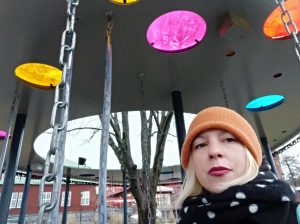 Šta mislite o kino klubovima kao samoorganizovanim kolektivima i o kino amaterizmu generalno?
Šta mislite o kino klubovima kao samoorganizovanim kolektivima i o kino amaterizmu generalno?
– Mislim da su kino klubovi jako produktivni za omladinu jer se uglavnom na takvim događajima javljaju super inicijative za bilo kakvu društvenu akciju. Uglavnom su te akcije inspirisane filmovima koji se selektivno biraju od strane ljudi koji vode te kino klubove.
Kako vidite razliku između dokumentarnog i igranog filma?
– Razlika je u konstruisanju čitave radnje. Dokumentarni film mnogo više pruža priliku spontanim i neplaniram pokretima ili radnjama koje su svakako jako moćne za dokumentarne filmove jer su veoma iskrene i realne i direktno prikazuju emotivno stanje junaka o kome se govori. Isto mislim da je razlika u tome što dokumentarni film pruža priliku namernog provociranja realnosti radi željenog rezultata, što uglavnom u igranim filmovima nije slučaj.
Na čemu trenutno radite?
– Radim na svom diplomskom filmu na fakultetu. Tema je socijalna i dosta aktuelna na Kosovu. Radi se o problemima studenata iz ostalih gradova koji žive i studiraju i rade u Prištini kao i konfrontaciji sa problemima na privatnom planu. Uglavnom su problemi razumljivi za moju generaciju. Drugim rečima, tretira taj namerno izabran trenutak glavnog junaka kad se u njegovom životu pojavljuju problemi sa kojima se on lično mora konfrontirati bez ičije pomoći. Takođe sam producent na projektu finansiranom od Centra za kinematografiju Kosova u polju razvoja scenarija.
- Pitanja čitalaca sa društvenih mreža
Koji su svakodnevni problemi sa kojima se ljudi na Kosovu susreću?
– Ima dosta problema na Kosovu, počevši od velike stope nezaposlenosti, sigurnosti na poslu, obrazovnom sistemu, visokom stepenu korupcije…
Da li posećujete pozorišta i bioskope, koji su trenutno najatraktivniji filmovi i serije na Kosovu, a koji, prema Vašem mišljenju, najkvalitetniji?
– Otkad je Kosovo dobilo pravo na Oskara, i otkad je film „Shok” bio nominiran za kratki film, na Kosovu vlada neverovatan entuzijazam i publike i industrije za stvaranje što boljih filmova. Donedavno su u bioskopima vladala dva jako personalna i dosta snažna filma „Cold November” Ismeta Sijarine i „Marriage” Blerte Zećiri, koji su bili na dosta prestižnih festivalima a ujedno su super prihvaćeni od domaće publike. Što se tiče serijala, publika obično zahteva komične serijale i uglavnom se samo to proizvodi i retko šta više od toga.
Kako vidite život na Kosovu za deset godina?
– Iako vlada veliki stepen nezaposlenosti, omladina na Kosovu je jako ambiciozna i spremna za rad i progres. Kad dođe do smene generacija na svim i institucionalnim i društvenim sferama, Kosovo može biti mala i veoma perspektivna evropska zemlja.
***
ENGSLIH VERSION
The youth in Kosovo is very ambitious and willing to work and make progress. When generational shift comes about in all spheres, both in the institutional and social ones, Kosovo can become a small and very promising European country, film director Edin Alija says. His last film “Nikome Ništa” (Nothing to Nobody) is very unique because Bosnian, Albanian and Serbian artists have had a hand in it, so, according to the words of our interviewee, it presents Kosovo as the country of multiethnic tolerance and cooperation and our artists as individuals who are perfectly willing to understand other side and to cooperate without any prejudice and hesitation.
Alija answered the questions asked by Danas journalists, film director Senka Domanovic and Danas social network followers within Danas portal project “Other Side of Kosovo”.
The project aims to provide Kosovar and Serbian public with the information which has not be presented by the political elites on any side, but by the independent citizens from the public and cultural scene of Kosovo.
- Questions asked by Danas journalists:
What, in your opinion, should be prioritized first and foremost in order to normalize relations between Serbia and Kosovo?
– I think that a lot of things have been done with regard to the normalization of relations between our two countries by Kosovar side but in my opinion, at least based on the information I have, it is not the case with Serbian side. In addition to political demagogy, the process of normalization has its psychological feature. To normalize relations also means to accept someone else who is different which is in this case the biggest problem which should be dealt with.
One typical example of this is “Miredita, Dobar dan” (Miredita, Good Afternoon) festival which takes place both in Pristina and Belgrade. There were protests and threats to the artists from Pristina during their visit to Belgrade. And it didn’t happen to the artists from Belgrade when they visited Pristina. It is a very small but important detail.
What do you think about the process of normalization that is currently being led by the authorities in Pristina and Belgrade?
– I think that there are a lot of unsolved problems which require talks and solution.
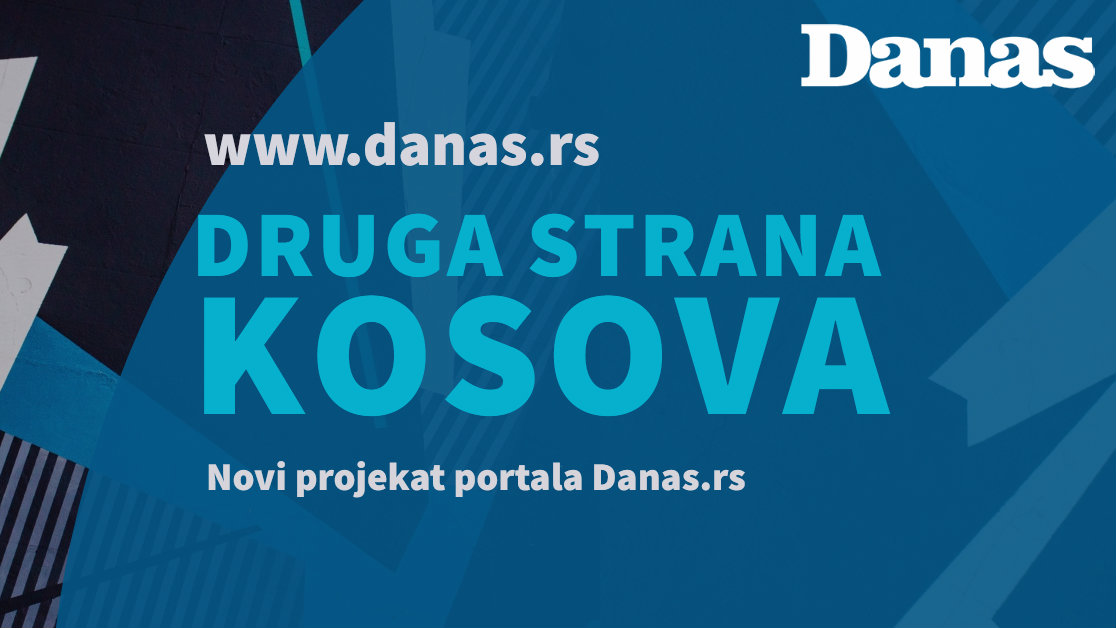
Is it possible that the normalization of relations between Kosovo and Serbia might be achieved by the political elites that were active during the 1990s conflicts?
– Bearing in mind political events which occurred in recent years and even decades, the solution is constantly mentioned, but it cannot be reached in any way. I think that they might not necessarily be the ones who will solve the problem.
What subjects do you predominantly deal with in your directing and lectures and how do you choose them?
– I predominantly deal with the social problems of Kosovar society in my films. Our society is developing one, which is why it provides plenty of room for observing and finding the film material which is relevant for this period.
I am interested in the lives of ordinary people, in their needs, problems, jobs, decisions as well as changes in their lives… I choose them by constant following the lives of my friends and colleagues and their acts in their private life and I find details and moments which I use to create the whole film reality.
My last film “Nikome ništa” (Nothing to Nobody) is the first film in Bosnian language broadcast in Kosovo. It differs from my other films because it covers an historical aspect of our society where the female destiny was shaped by their parents. In Kosovo in the 1970s, poor families often married their daughters to older men from the wealthier families in order to improve their own financial situation. This phenomenon is still present today in one small mainly rural part of Kosovo, true, to a much lesser extent, and it was a strong motive for making this film.
The film is very unique because Bosnian, Albanian and Serbian artists have had a hand in it, so it presents Kosovo as the country of multiethnic tolerance and cooperation and our artists as individuals who are perfectly willing to understand other side and to cooperate without any prejudice and hesitation.
You are the member of the Kosovo&Serbia- Intercultural Icebreakers project. What is the aim of the project and what has been achieved through it so far?
– Kosovo&Serbia was a great experience both for me and my friends who were the members of these workshops lasting several days. The aim of the project is the literal meaning of the word “icebreaking”. We were on a visit to Belgrade and Novi Sad for several days and then visited Pristina and Prizren and it was very good strategically planned given the fact that most artistic events take place in these cities.
The workshops were very interactive ones and friendships were made in the process of various activities, which, in my opinion, was a goal of the organizators and I think that they were very successful in that.
Would you cooperate with Serbian film directors, what would be the subject, and who would be your favourite one to work with?
– Besides the Faculty of Dramatic Arts students with whom I already cooperated in the previous years, I would like to meet Miki Manojlovic and speak with him about his numerious challenges in his varied career.
- Questions asked by film director Senka Domanovic:
What do you think about cinema clubs as self-organized groups and about cinema amateurism in general?
– I think that cinema clubs are very productive for the youth because great initiatives for any social action mainly occur in such events. These actions are mainly inspired by the films which have been selectively chosen by the people who run the cinema clubs.
How do you see the difference between documentary film and fictional film?
– The difference lies in the ways of constructing the whole plot. Documentary film offers greater opportunity for spontaneous and unplanned motions and actions which are definitely very powerful for documentary films because they are very genuine and real and show the emotional state of the characters the film talks about, in direct way. Similarly, I think that the difference lies in the fact that documentary film gives opportunity for intentional provocation of reality for the purpose of achieving the wanted goal which is mainly not the case in fictional films.
https://www.instagram.com/p/BuRERB3BYdz/
What do you work on?
– I work on the film which is my Bachelors dissertation in the University. The topic is social one and very popular in Kosovo. It refers to the problems students from other cities who live, study and work in Pristina face and the problems they confront in their private life. These problems are mainly understandable for my generation. In other words, it deals with the intentionally chosen moment in the life of the main character when problems occur and he has to face them on his own, without anyone’s help. I am also a producer in the project financed by the Center for cinematography of Kosovo in the fiield of the scenario development.
- The questions asked by Danas social network followers:
What are the everyday problems people in Kosovo face?
– There are a lot of problems in Kosovo, starting from the high unemployment rate, security on the job, education system, high-level corruption rate…
Do you go to the theatre and cinema, which films and series are the most popular in Kosovo and which ones are, in your opinion, the best?
– Since Kosovo got the right to participate in the Oscar nominations and since the film “Shok” became an Oscar nominee for best short film, there has been incredible enthusiasm both in the public and in the industry of the production of the best possible films in Kosovo. Until recently two highly personalized and quite powerful films – “Cold November” by Ismet Sijarina and “Marriage” by Blerta Zeqiri – dominated the cinemas and they were presented in many prestigious festivals and in the same time were met with great reception from the national public. With regard to series, the public usually demands comedy series and that is what is mainly produced and only in rare cases something besides that is made.
How do you see the life in Kosovo for ten years?
– Despite high unemployment rate, the youth in Kosovo is very ambitious and willing to work and make progress. When generational shift comes about in all spheres, both in the institutional and social ones, Kosovo can become a small and very promising European country.
Pratite nas na našoj Facebook i Instagram stranici, ali i na X nalogu. Pretplatite se na PDF izdanje lista Danas.



